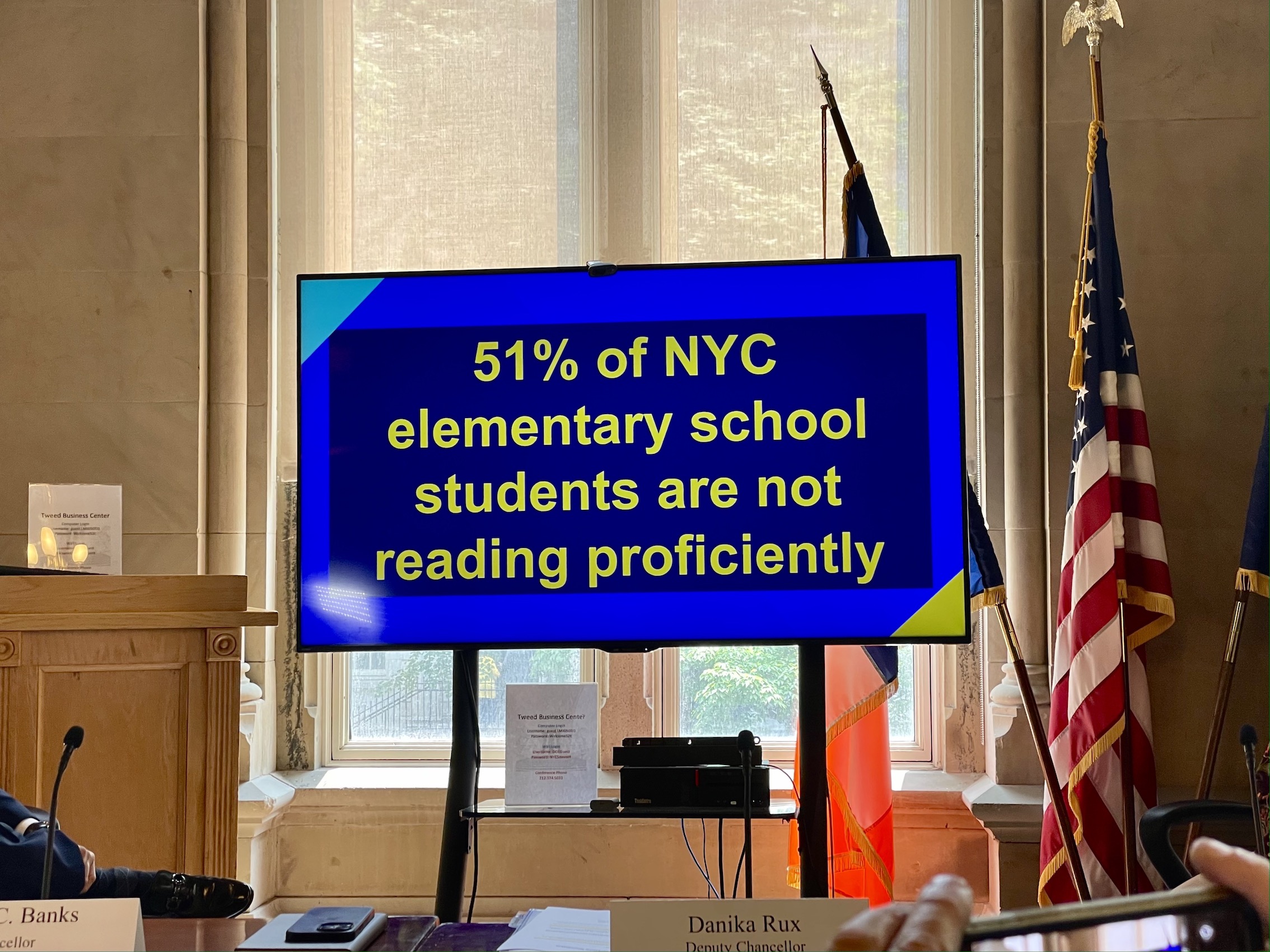New York City Public Schools are undergoing a significant change in their approach to teaching reading in response to a literacy crisis. Currently, 51% of students in grades 3-8 are unable to read, with minority students being even less proficient. Mayor Eric Adams, who was teased as a child for his own struggles with reading, has made this initiative a priority. The current system, which relies on using picture clues to guess words, will be replaced by a phonics-based approach that teaches students to decode letters. Adams has vowed to prevent other students from experiencing the same difficulties he faced in school.
Today, at the tweed courthouse, Chancellor David C. Banks, Deputy Chancellor Kara Ahmed, Deputy Chancellor Carolyne Quintana and Deputy Chancellor Danika Rux illustrated some disastrous numbers collected in New York City: 64% of Black students and 63% of Hispanic students failing reading tests. Schools Chancellor Banks attributes the problem to flawed teaching methods and bad guidance. To address this, a new program will be implemented over two years, offering superintendents a choice of three phonics-based programs, with all schools in the district teaching reading in the same way.
The program also includes specialized training for teachers. While the teachers’ union supports the change, the principals’ union does not. In response to the controversy, officials have gathered community leaders to praise the initiative’s boldness.

This move places New York City at the forefront of efforts to improve literacy nationwide. Other cities, such as Detroit and Chicago, are facing similar or even worse problems, with 91% and 80% of students not reading at grade level. Chancellor Banks notes that the inability to read has troubling side effects, with 70% of incarcerated adults reading below fourth grade level.
Most students need explicit instruction in letter sounds and combinations to learn to read. However, many schools continue to use curricula that de-emphasize phonics. Therefore, starting this fall, half of the city’s districts will adopt new materials, and the other half will follow by fall 2024. Superintendents must choose from three curricular options: “Into Reading,” “Wit & Wisdom,” and “EL Education.” Early education programs will also have to adopt new assessments and curriculums.
Teachers will receive “real hardcore professional development” to revamp their lessons, with the training spanning 26 days and they will be paid for each session. The Adams administration promised to provide coaches to work with teachers and superintendents on implementation, which is expected to cost $35 million.












